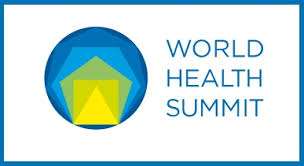Dr. Mary-Ann Etiebet, President and Chief Executive Officer of Vital Strategies, has called for urgent global efforts to rebuild public trust in health systems, describing it as a “life-and-death issue” central to the future of global health.
Etiebet, who spoke with correspondence on Wednesday in Abuja after the 2025 World Health Summit in Berlin, warned that the greatest threat facing modern healthcare was not scientific limitation, but the erosion of public confidence.
According to her, misinformation and disinformation have undermined decades of public health progress, fuelled hostility toward health agencies, disrupted essential services, and deepened social divides.
“Closing this trust gap is not optional, it’s a life-and-death issue,” she said. “Without trust, we risk losing public support for lifesaving policies such as vaccination and universal health coverage.”
She stressed that the mission of public health must evolve from mere data collection to genuine community dialogue, and from counting cases to connecting with lived experiences.
Etiebet noted that in today’s digital information age, falsehoods spread faster than facts — propelled by algorithms that reward emotion over scientific accuracy. To counter this, she urged governments to develop “listening systems” that merge traditional surveillance with digital insights.
Highlighting Vital Strategies’ AI tool, CANARY, she explained that the system identifies public health threats on social media in real time.
“In Indonesia, CANARY helped regulators detect and curb tobacco marketing to children on digital platforms , proof that AI can safeguard health beyond traditional disease surveillance,” she said.
Etiebet further called for investment in communication infrastructure, trained health communicators, and culturally sensitive messaging platforms.
“Data becomes a bridge to trust when listening becomes routine,” she added, stressing that making data relatable and responsive was as vital as its collection.
She also cited Brazil’s More Data Better Health (MDBH) initiative as an example of citizen-driven digital data collection that improves policy design. The MDBH uses online ads and polling techniques to rapidly capture public sentiment and health trends, offering what she described as a “scalable, cost-effective model” for other nations.
Etiebet urged world leaders to build “next-generation health systems with humility and purpose,” warning that the gap between science and society would widen unless systems were designed to listen.
Reaffirming Vital Strategies’ commitment, she said:
“Every birth must be counted and linked to rights and services, so no one is left behind.”


